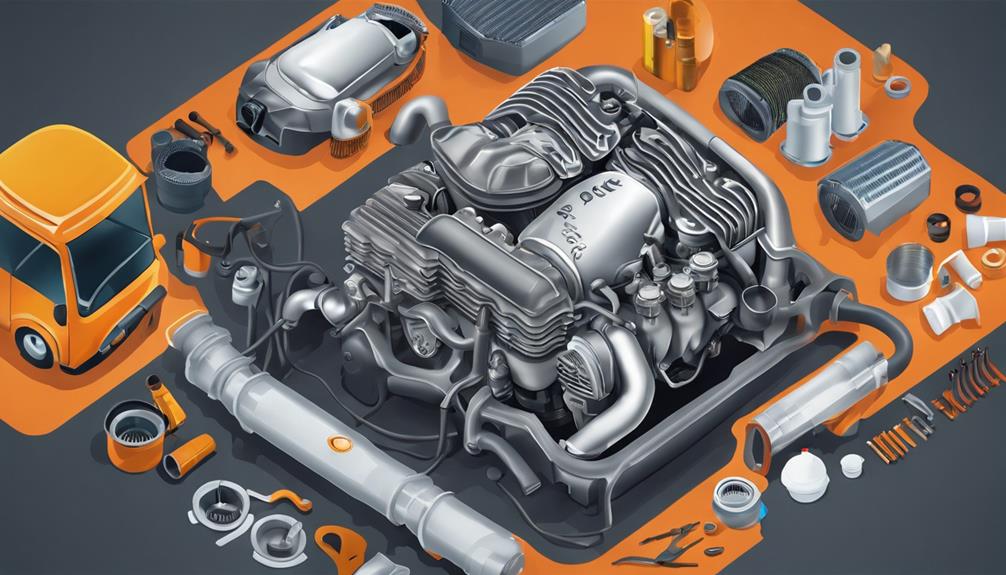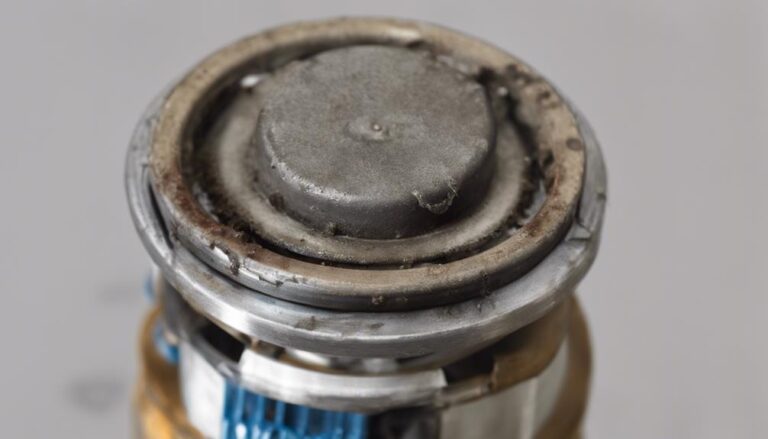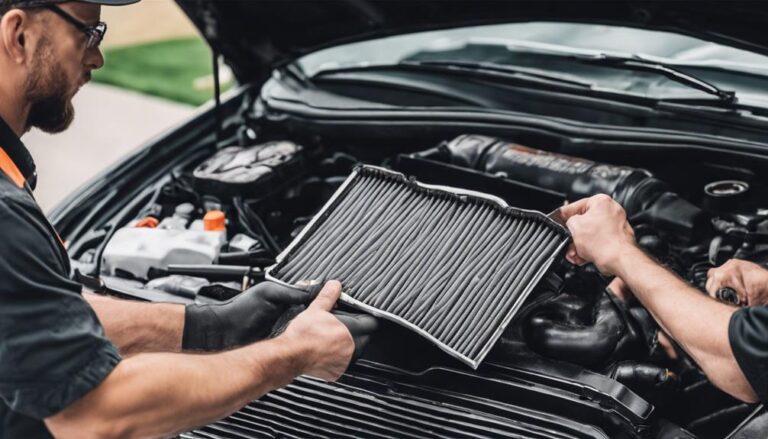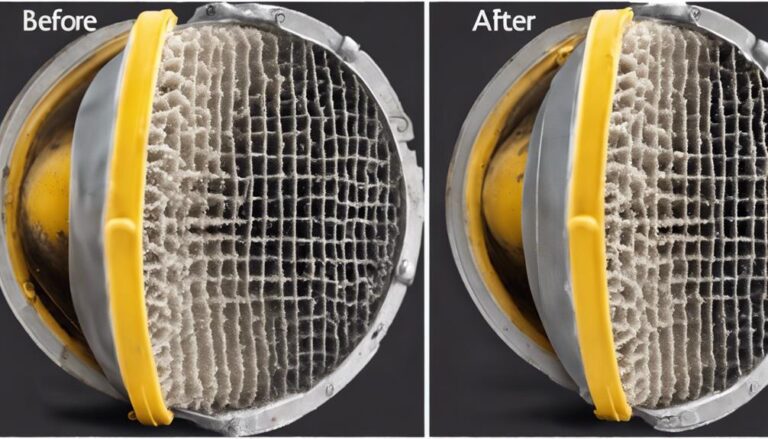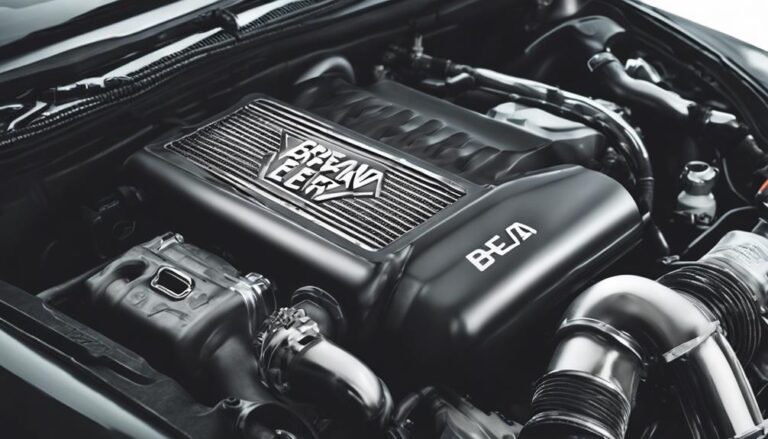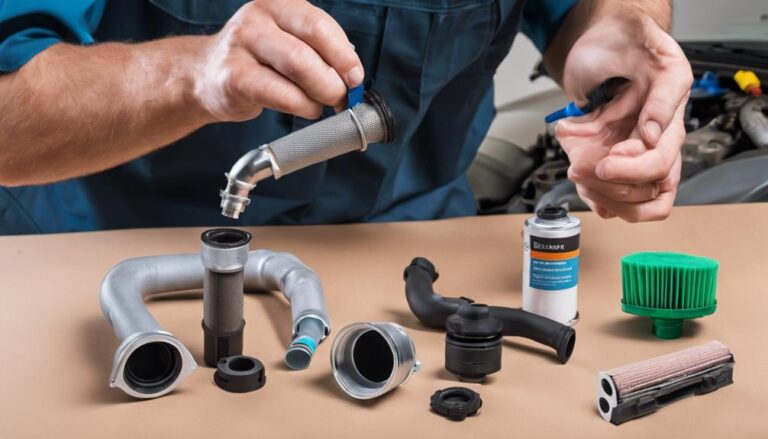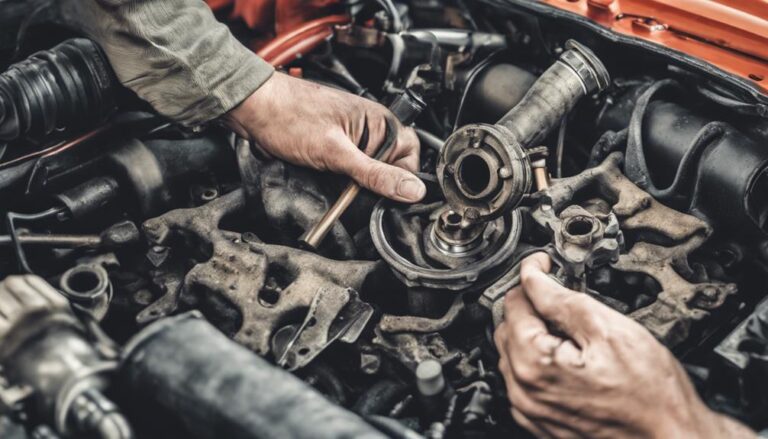7 Best Ways to Prolong PCV Valve Lifespan
Ever heard the saying, 'An ounce of prevention is worth a pound of cure'?
When it comes to your vehicle's PCV valve, a little care goes a long way. By implementing a few simple practices, you can greatly extend the lifespan of this essential component in your engine.
From regular inspections to responsible driving habits, these methods can save you from costly repairs down the road. But what are these 7 best ways, and how can they help you avoid potential issues?
Key Takeaways
- Conduct regular engine inspections and oil changes.
- Replace the PCV valve within recommended mileage.
- Maintain smooth driving habits and minimize idling.
- Use quality products and seek professional guidance.
Regular Engine Inspections
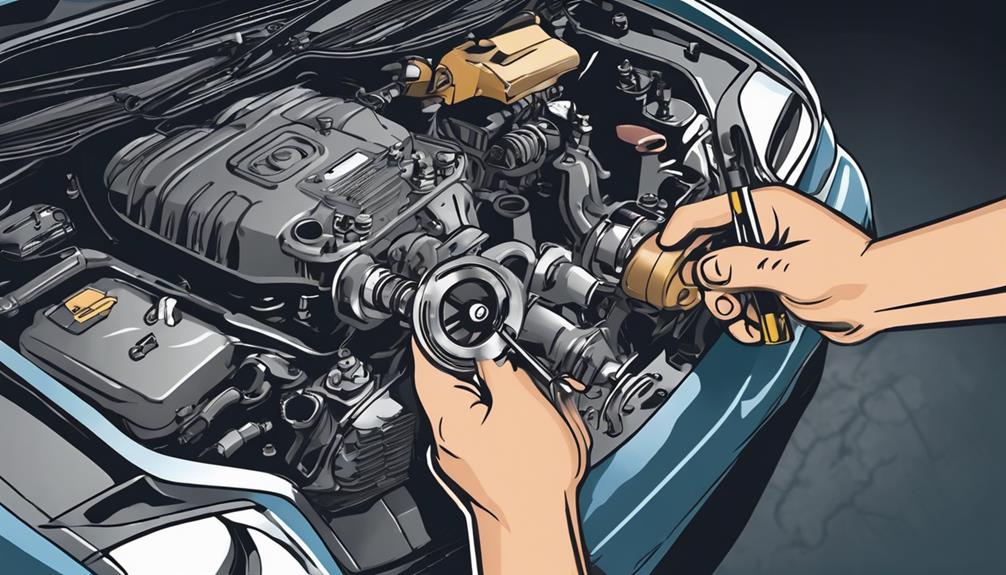
To maintain the longevity of your PCV valve, regularly inspect your engine for any signs of wear or damage. The PCV (Positive Crankcase Ventilation) valve plays a crucial role in guaranteeing peak engine performance and emissions control. By conducting routine engine inspections, you can identify potential issues early on and prevent costly repairs down the line.
When examining your engine, pay close attention to the PCV valve and associated components. Look for any cracks, leaks, or clogs that may impede proper airflow and ventilation. A malfunctioning PCV valve can lead to decreased engine performance and increased emissions, impacting both your vehicle's efficiency and the environment.
Check the PCV valve for proper functioning by testing its ability to regulate the flow of gases between the crankcase and intake manifold. Any deviation from the specified operational parameters could indicate a problem that requires immediate attention. By staying proactive with your engine inspections, you can guarantee that your PCV valve continues to effectively manage emissions control and maintain peak engine performance.
Use High-Quality Engine Oil
For best performance and longevity of your PCV valve, make sure you use only high-quality engine oil. Using the right engine oil not only guarantees smooth operation but also helps maintain the proper functioning of the PCV system. Here are some key points to take into account:
- Oil Viscosity: Opt for engine oils with the viscosity grade recommended by your vehicle manufacturer. Proper viscosity guarantees the oil flows correctly through the engine and reaches the PCV valve effectively.
- Synthetic Blends: Contemplate using synthetic blends as they offer better protection and performance compared to conventional oils. Synthetic blends have fewer impurities, reducing the likelihood of sludge buildup in the PCV system.
- Regular Oil Changes: Maintain a regular oil change schedule to prevent old, dirty oil from clogging the PCV valve.
- Check Oil Levels: Ensure your engine oil is always at the recommended level to prevent oil starvation that can lead to PCV valve issues.
- Consult Your Owner's Manual: Always refer to your vehicle's owner's manual for the recommended engine oil type and change intervals to keep your PCV valve in top condition.
Replace PCV Valve Periodically
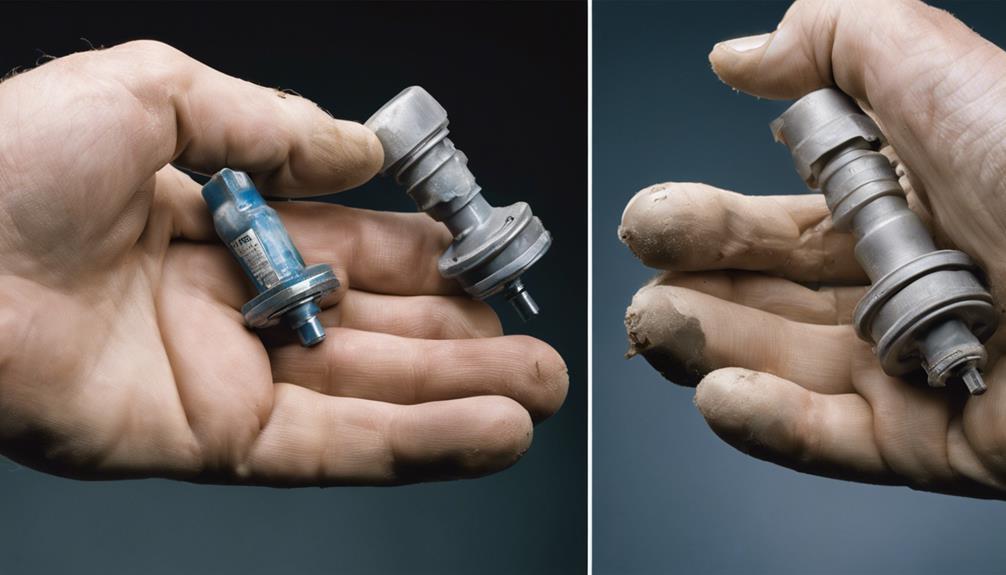
When should you consider replacing your PCV valve to guarantee ideal engine performance and longevity? Proper PCV valve maintenance is essential for your engine's health. The frequency of PCV valve replacement varies depending on your vehicle's make and model, but as a general rule of thumb, it's recommended to replace the PCV valve every 20,000 to 50,000 miles to guarantee ideal performance.
Over time, the PCV valve can become clogged or fail, leading to a range of issues such as decreased fuel efficiency, rough idling, and increased emissions. By replacing the PCV valve periodically, you can prevent these problems and keep your engine running smoothly.
Regularly replacing the PCV valve is a simple and cost-effective way to maintain your vehicle's performance and increase its longevity. Consult your vehicle's manual or a trusted mechanic to determine the specific replacement frequency that's best suited for your vehicle. Remember, a well-maintained PCV valve is key to a healthy engine.
Check Breather Filter Condition
Regularly evaluating the condition of your breather filter is important for maintaining peak engine performance and longevity. Proper breather maintenance guarantees that harmful contaminants are kept out of your engine, preventing damage and promoting efficient operation.
Here are some essential steps to take for the best breather filter maintenance:
- Inspect for Clogging: Check the breather filter for any signs of clogging, such as dirt or debris accumulation.
- Clean Regularly: Clean the filter at recommended intervals to prevent buildup that can restrict airflow.
- Look for Tears or Damage: Examine the filter for tears or damage that could compromise its effectiveness.
- Replace When Necessary: If the filter is excessively dirty or damaged, consider filter replacement to maintain proper engine function.
- Follow Manufacturer Recommendations: Adhere to the manufacturer's guidelines for filter replacement intervals to guarantee performance.
Maintain Proper Engine Tune-Up
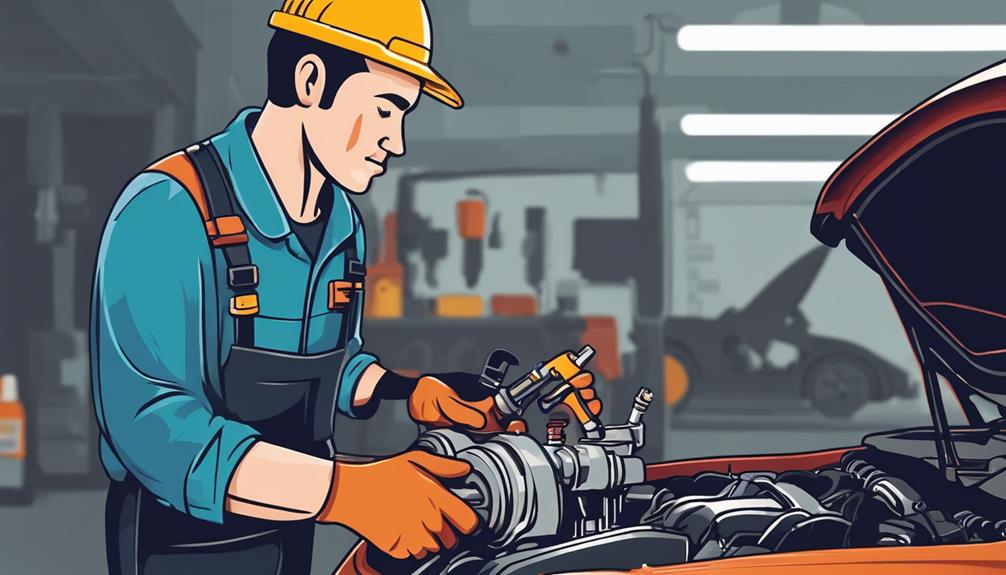
To maintain proper engine performance and prolong your PCV valve's lifespan, adhere to a regular maintenance schedule.
Make sure to check and adjust the ignition timing as recommended by the manufacturer to optimize engine efficiency.
These steps will help prevent excessive wear on the PCV valve and maintain the overall health of your engine system.
Regular Maintenance Schedule
Maintaining a proper engine tune-up is essential for extending the lifespan of your PCV valve. To affirm your PCV valve functions at its peak, follow these maintenance tips:
- Regularly inspect and replace spark plugs to prevent misfires.
- Check and clean air filters to maintain proper airflow.
- Monitor and refill engine oil to prevent sludge buildup.
- Inspect and replace worn-out ignition cables for consistent spark delivery.
- Adjust engine idle speed to prevent stalling and rough idling.
Check Ignition Timing
Inspecting the ignition timing is a critical aspect of maintaining a proper engine tune-up for prolonging the lifespan of your PCV valve. To guarantee peak performance and longevity of your PCV valve, it's essential to regularly adjust the timing of the ignition system.
Correct timing allows for the precise combustion of fuel in the engine cylinders, preventing issues like misfires or poor fuel efficiency that can negatively impact the PCV valve.
Avoid Engine Overheating
Regularly monitoring your vehicle's temperature levels is important to preventing engine overheating and maintaining the longevity of your PCV valve. Engine overheating can lead to severe damage to various components, including the PCV valve. To avoid such issues, consider the following preventive measures to make sure your engine stays at a peak temperature:
- Check Coolant Levels: Insufficient coolant can cause overheating. Make sure the coolant is at the recommended level.
- Inspect Radiator: Make sure the radiator is free from blockages or leaks that could impede proper cooling.
- Monitor Temperature Gauge: Keep an eye on the temperature gauge on your dashboard regularly.
- Flush Cooling System: Periodically flush the cooling system to remove any debris or contaminants that could affect cooling efficiency.
- Address Leaks Promptly: Any leaks in the cooling system should be fixed promptly to prevent overheating.
Drive Responsibly

To confirm the peak performance of your vehicle and extend the lifespan of your PCV valve, drive responsibly by adhering to recommended speed limits and avoiding sudden accelerations or decelerations. Safe driving practices not only enhance road safety but also play an important role in maintaining your PCV valve's efficiency. By driving within the specified speed limits, you reduce the strain on your engine, which in turn decreases the pressure on the PCV valve system, supporting its longevity.
Additionally, avoiding abrupt accelerations and decelerations contributes to fuel efficiency, which is directly linked to the PCV valve's lifespan. Sudden changes in speed lead to increased fuel consumption, causing the engine to work harder and producing more blow-by gases that the PCV system needs to manage. Consistent and smooth driving patterns help regulate these gas flows, reducing the wear and tear on the PCV valve over time. By practicing safe driving habits and maintaining fuel efficiency, you safeguard not only your vehicle but also extend the life of your PCV valve.
Frequently Asked Questions
Can the PCV Valve Be Cleaned Instead of Replaced Periodically?
You can clean the PCV valve instead of replacing it periodically. This method involves removing the valve, using a solvent to clean it thoroughly, and ensuring proper reinstallation. It's effective if done correctly, but regular maintenance schedules offer long-term benefits.
How Often Should the Breather Filter Be Checked for Optimal PCV Valve Function?
Inspect your breather filter every 12,000-15,000 miles for peak PCV valve function. Routine maintenance guarantees proper airflow and prevents clogs. Cleaning the valve alongside filter checks helps sustain engine efficiency and longevity.
Are There Any Signs or Symptoms to Look Out for That Indicate a Failing PCV Valve?
If you suspect a malfunctioning PCV valve, be vigilant for warning signs like rough idling or decreased fuel efficiency. To diagnose the issue, seek professional assistance for proper evaluation and potential replacement to maintain your vehicle's performance.
Is It Recommended to Use a Specific Type or Brand of Engine Oil for Prolonging PCV Valve Lifespan?
To maintain your engine's health, opt for high-quality oil. Regularly check and clean your PCV valve to prevent issues. When needed, replace it promptly. Following these engine maintenance steps will help prolong your PCV valve lifespan.
What Are Some Common Causes of PCV Valve Failure That Should Be Avoided to Extend Its Lifespan?
To prevent PCV valve damage, avoid ignoring signs like high oil consumption or rough idling. Regular PCV valve maintenance, troubleshooting can extend its lifespan. Replacing a faulty PCV valve promptly is key to preventing costly engine repairs.
Conclusion
To sum up, by following these 7 best ways to prolong your PCV valve lifespan, you can guarantee peak engine performance and efficiency.
Failure to adhere to these guidelines could result in catastrophic engine damage, leaving you stranded and facing costly repairs.
Take control of your vehicle's health and longevity by implementing these simple maintenance practices today. Your PCV valve will thank you for it.

